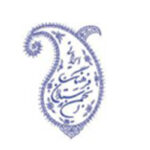German Panel explores migration, media and misperception

Panelists at the event. From left to right: Ursula Russman, Canan Topcu, Markus End, Mahyar Nicoubin.
A recent panel discussion on the German media’s depiction of international migration in that society was organized by the Bahá’í community in partnership with German NGO, the Foundation for the International Weeks against Racism. The panel explored such questions as how the media influences our sense of identity, how it shapes our perception of those different from us, and how it reinforces “otherness.”
The event, titled “Exclusion in Germany: Is Media Honoring its Responsibility?”, was held in December at the Bahá’í National Centre outside Frankfurt to mark UN Human Rights Day, and its audience included members of European Parliament, religious representatives, and members of the public.
Canan Topcu, a Turkish-born journalist and member of the Neue deutsche Medienmacher (New German Media Makers), moderated the panel discussion, which comprised: Ms. Ursula Russmann, editor at Frankfurter Rundschau, a daily newspaper; Dr. Markus End, a social scientist and Board Member of the Association of Antiziganism Research; and Ms. Mahyar Nicobin, a representative of the Bahá’í community.
Panelists discussed challenges faced by journalists in trying to write about the complex topic of migration. In addition to the normal pressures of time constraints and limitations on story length, journalists face demands by news organizations for sensationalized stories and the reduction of complex themes into simplistic narratives.

Markus End discussed his recently published study on the portrayal of the Roma in the German media at the National Bahá’í Centre outside Frankfurt, Germany.
Dr. End explained that language and images in the media consolidate stereotypes and prejudices in society, accentuating the “othering” that comes to characterize popular attitudes towards some ethnic minorities.
Regarding images used for stories, panelists discussed how journalists often draw from stock photographs in databases provided by news organizations. The photos available often lack context, reinforce stereotypes, and objectify populations.
Ms. Saba Detweiler, one of the organizers of the event, explained that, as in many other countries, Germany has witnessed the issues of migration and integration move to the forefront of public consciousness. Describing the motivation behind the event, she explained that the issue is close to the hearts of the Bahá’ís, who are working with increasing numbers of like-minded groups to overcome the corrosive effects of prejudice and to foster harmony among the diverse elements of society.
–Bahá’í World News Service
Category: World News








